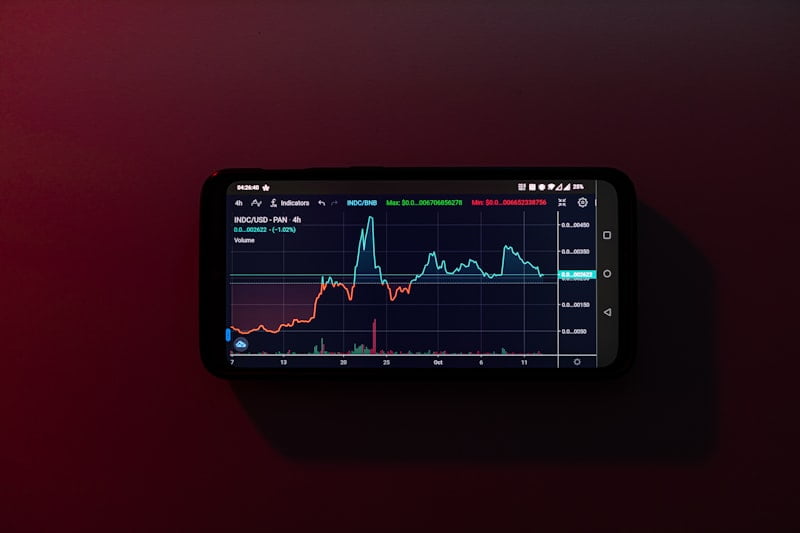What Is the Role of Cryptocurrency in the Internet of Things (IoT)?

Moreover, cryptocurrencies like Bitcoin and Ethereum enable micropayments—a revolutionary concept in the IoT ecosystem. Imagine a scenario where smart devices autonomously negotiate and execute transactions, such as a self-driving car paying for tolls or charging stations seamlessly. These microtransactions, facilitated by cryptocurrencies, not only streamline processes but also open up new revenue streams and business models.
Beyond transactions, cryptocurrency enhances data integrity within IoT networks. Blockchain’s immutable ledger ensures that data generated by IoT devices remains tamper-proof and transparent. This feature is crucial in sectors requiring high levels of accountability, such as healthcare and supply chain management, where accurate data is critical for decision-making and compliance.
In essence, cryptocurrency serves as a catalyst in the evolution of IoT, transforming how devices interact, transact, and secure data. As technology continues to advance, the synergy between cryptocurrency and IoT promises to redefine industries, paving the way for a more interconnected and efficient future.
Unlocking Smart Transactions: How Cryptocurrency Powers IoT Devices
Cryptocurrency, like Bitcoin and Ethereum, is not just digital money; it’s a revolutionary technology that enables secure, decentralized transactions. It operates on blockchain, a distributed ledger that records transactions across a network of computers. Now, imagine integrating this technology into IoT devices, which are everyday objects embedded with sensors and connected to the internet.
The marriage of cryptocurrency and IoT creates a new paradigm of smart transactions. These devices can autonomously conduct microtransactions, instantly paying for services or resources they need. For example, a smart car could pay for electricity at a charging station or tolls on a road trip, all without human intervention.
Security is paramount in this ecosystem. Cryptocurrency’s blockchain ensures that transactions are tamper-proof and transparent. Each transaction is verified and recorded across the network, making fraud virtually impossible. This level of security is crucial for IoT devices, which often handle sensitive data and control critical functions.
Moreover, cryptocurrency enables seamless cross-border transactions. IoT devices can operate globally without concerns about currency exchange rates or international banking fees. This frictionless transfer of value opens new possibilities for interconnected, borderless networks of devices communicating and transacting independently.
The potential applications of this technology are vast and transformative. Smart cities could optimize energy usage based on real-time data from IoT-connected devices, with payments for electricity instantly processed by cryptocurrency. Healthcare devices could securely share patient data across borders while compensating each other for services rendered.
From Smart Homes to Autonomous Vehicles: Cryptocurrency’s IoT Revolution
IoT devices, ranging from smart refrigerators to autonomous vehicles, are increasingly becoming interconnected, creating a network known as the Internet of Things. These devices collect and exchange data to automate processes and enhance efficiency. Now, imagine these devices not only exchanging data but also conducting transactions securely and autonomously using cryptocurrencies. This integration opens up a realm of possibilities, where machines can independently execute payments, verify identities, or even negotiate contracts—all without human intervention.
Cryptocurrencies provide the foundation for this IoT revolution by offering decentralized and secure transactions. Unlike traditional centralized systems, blockchain technology ensures transparency and immutability, making it ideal for IoT applications where data integrity and security are paramount. For instance, autonomous vehicles equipped with IoT sensors can utilize cryptocurrencies to pay for tolls, parking fees, or even maintenance services in real-time, without needing human intervention.
Moreover, the marriage of cryptocurrency and IoT extends beyond smart homes and autonomous vehicles. It encompasses sectors such as healthcare, logistics, and agriculture, where IoT devices powered by blockchain can revolutionize supply chain management, patient data security, and agricultural monitoring. This synergy not only enhances operational efficiencies but also opens new avenues for innovation and economic growth.
As we embrace this IoT revolution powered by cryptocurrencies, it’s essential to navigate the complexities and potential challenges. Issues such as scalability, interoperability, and regulatory frameworks will require continuous refinement to fully realize the transformative potential of this technology fusion. Nevertheless, the prospect of a world where devices autonomously interact and transact using cryptocurrencies presents a future that is both exciting and full of promise.
Securing IoT Networks: Cryptocurrency’s Role in Blockchain-Driven Security
In the realm of securing IoT networks, cryptocurrency emerges as a pivotal tool through blockchain technology. Imagine a fortress where each brick represents a transaction, securely linked together to form an impenetrable shield against cyber threats. This is the essence of blockchain – a decentralized ledger system that ensures transparency and security without a single point of failure.

Cryptocurrency plays a crucial role within this framework, acting as a medium of value transfer and incentivizing network participants, known as miners or validators. These actors validate transactions and secure the network by dedicating computational power to solve cryptographic puzzles. In return, they earn cryptocurrency rewards, fostering a self-sustaining ecosystem that thrives on security and trust.
Moreover, blockchain’s immutable nature ensures that once data is recorded, it cannot be altered retroactively, making it ideal for IoT applications where data integrity is paramount. This tamper-resistant feature not only enhances security but also builds resilience against unauthorized access and data breaches.

Cryptocurrency and blockchain technology together offer a robust framework for securing IoT networks. By leveraging cryptographic security, decentralized consensus mechanisms, and smart contracts, they create a foundation where trust, transparency, and resilience form the bedrock of IoT security solutions. As the digital landscape evolves, their role in safeguarding sensitive data and enabling seamless interactions among IoT devices continues to grow, paving the way for a more secure and interconnected future.
Machine-to-Machine Economy: Cryptocurrency’s Impact on IoT Transactions
Imagine a scenario where your refrigerator autonomously orders groceries when supplies run low, or where your car pays for tolls and parking without your intervention. These are not just futuristic dreams anymore but practical applications of the M2M economy enabled by cryptocurrencies like Bitcoin and Ethereum.
Cryptocurrencies play a crucial role in facilitating secure and efficient transactions between IoT devices. Unlike traditional financial systems, which often involve complex processes and fees, cryptocurrencies streamline transactions by eliminating intermediaries. This not only reduces costs but also enhances the speed of transactions, making microtransactions feasible on a large scale.
One of the key advantages of using cryptocurrencies in the M2M economy is their ability to operate autonomously without human intervention. Smart contracts, powered by blockchain technology, ensure that agreements between devices are executed automatically when predefined conditions are met. This level of automation increases operational efficiency and reduces the risk of fraud or tampering.
Moreover, cryptocurrencies provide a level of security that is essential for IoT devices, which often handle sensitive data and execute critical functions. Blockchain technology, the underlying framework for most cryptocurrencies, ensures that transactions are transparent, immutable, and resistant to attacks. This makes IoT ecosystems more resilient and trustworthy, fostering greater adoption of connected devices across various industries.
As the M2M economy continues to evolve, fueled by advancements in cryptocurrencies and IoT technologies, we can expect to see innovative use cases emerge. From smart cities managing public infrastructure to industrial machinery optimizing production processes, the integration of cryptocurrencies into IoT transactions opens up new possibilities for efficiency, scalability, and economic growth.
